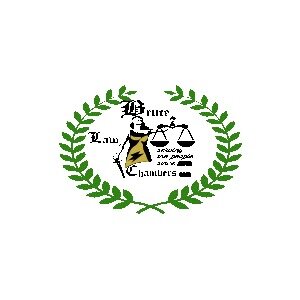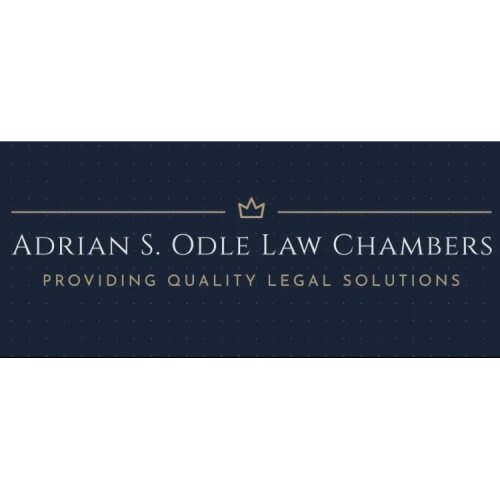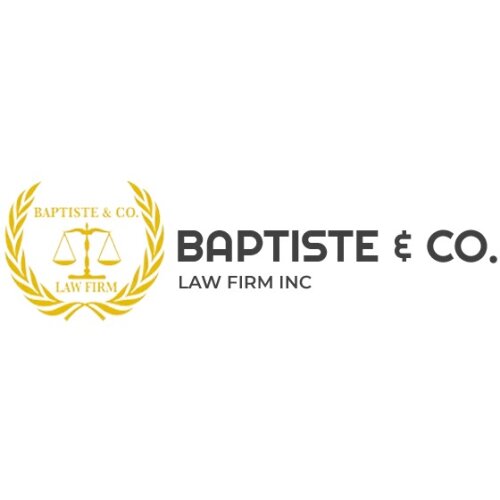Best Renewable & Alternative Energy Lawyers in Saint Vincent and the Grenadines
Share your needs with us, get contacted by law firms.
Free. Takes 2 min.
Or refine your search by selecting a city:
List of the best lawyers in Saint Vincent and the Grenadines
About Renewable & Alternative Energy Law in Saint Vincent and the Grenadines
Saint Vincent and the Grenadines is an island nation with a strong commitment to sustainable development and environmental protection. Over the past decade, the country has made significant investments in renewable and alternative energy sources, such as geothermal, solar, hydroelectric, and wind power. These efforts are meant to reduce reliance on imported fossil fuels, lower energy costs, and diminish the national carbon footprint. Renewable and alternative energy law governs the development, licensing, regulation, and integration of these energy sources, ensuring that projects are safe, environmentally responsible, and aligned with the nation’s energy policy.
Why You May Need a Lawyer
Ensuring compliance with renewable and alternative energy regulations can be complex. Individuals and businesses might seek legal help in the following situations:
- Applying for government licenses or permits for renewable energy installations
- Negotiating land-use agreements for solar farms or wind turbines
- Understanding tax incentives or financial support for green energy projects
- Drafting or reviewing power purchase agreements with local utilities
- Navigating disputes related to environmental impact or community concerns
- Ensuring compliance with health, safety, and environmental standards
- Addressing issues with grid connection or competing interests in land or water use
A lawyer specializing in this area ensures all regulatory requirements are met, reduces legal risks, and helps safeguard your investment or personal interests.
Local Laws Overview
Saint Vincent and the Grenadines has recognized the importance of renewable and alternative energy through legislation and initiatives aligned with its National Energy Policy. Some key aspects include:
- Licensing and Permitting: The government requires businesses or individuals intending to generate, transmit, or sell renewable energy to obtain proper licenses and permits.
- Environmental Regulations: Energy projects must assess and mitigate environmental impact through Environmental Impact Assessments (EIAs) as mandated by the Environmental Management Act.
- Investment Incentives: Several incentives exist for renewable energy projects, such as duty-free concessions on equipment and possible tax breaks under the Fiscal Incentives Act.
- Grid Access: The Electricity Supply Act provides for guidelines on how independent power producers can connect to the national grid, as well as requirements laid out by the St Vincent Electricity Services Limited (VINLEC).
- Land Use & Zoning: Land designated for solar, wind, or geothermal use must comply with applicable zoning and land-use laws.
- Consumer Rights and Safety: There are standards in place to ensure consumer protection, energy safety, and fair market practices within this sector.
Frequently Asked Questions
What sources of renewable energy are most common in Saint Vincent and the Grenadines?
The country mainly utilizes hydropower, solar photovoltaic systems, wind, and is actively exploring geothermal energy due to its volcanic potential.
Do I need a license to install solar panels on my home?
For small residential uses, typically no special license is needed, but installation must adhere to electrical safety standards and any relevant municipal bylaws.
Are there incentives for businesses to invest in renewable energy?
Yes, the government offers concessions on import duties for renewable energy technology and may provide tax incentives for qualifying investments.
Who regulates renewable energy projects?
Regulation is overseen primarily by the St Vincent and the Grenadines Energy Unit, Environmental Management Division, and the utility company VINLEC.
How do I get permission to sell energy back to the grid?
This requires a power purchase agreement with VINLEC and compliance with the Electricity Supply Act. Approval from regulators and technical assessments are needed.
What are the environmental obligations for a renewable energy project?
Projects must conduct environmental impact assessments and follow any mitigation or management requirements issued by the Environmental Management Division.
Can foreign companies invest in local renewable energy projects?
Yes, though foreign entities must comply with local investment laws, obtain permits, and possibly enter joint ventures with local partners.
What happens if my project faces opposition from local communities?
Community engagement is crucial. Legal advice can help navigate the consultation process, mediate disputes, and ensure regulatory compliance.
Is there a feed-in tariff or special rate for renewable energy producers?
Feed-in tariffs and rates are set through agreements with VINLEC. These may be subject to negotiation and regulatory approval.
What is the process for resolving disputes in renewable energy projects?
Disputes may be resolved through negotiations, mediation, or by seeking a formal decision from regulatory bodies. Legal representation can be invaluable in these cases.
Additional Resources
For further information or assistance, the following resources may be helpful:
- Energy Unit (Prime Minister’s Office): Responsible for developing and implementing national energy policy
- St Vincent Electricity Services Limited (VINLEC): Handles electricity supply, grid connection, and purchase agreements
- Environmental Management Division: Reviews environmental impact assessments and monitors compliance
- Saint Vincent and the Grenadines Chamber of Industry and Commerce: Can provide investment and business guidance
- Local Bar Association: For locating qualified legal professionals in energy law
Next Steps
If you require legal assistance in renewable and alternative energy matters, consider the following steps:
- Define the scope of your project or concern and gather all relevant documents
- Consult with an attorney who has experience in energy and environmental law in Saint Vincent and the Grenadines
- Contact government offices such as the Energy Unit or VINLEC to understand regulatory requirements
- Engage with local stakeholders early in the process to ensure community support
- Remain informed about updates to national policy and regulations affecting renewable energy
By consulting with a legal professional early, you can navigate the regulatory landscape confidently and set your project up for success.
Lawzana helps you find the best lawyers and law firms in Saint Vincent and the Grenadines through a curated and pre-screened list of qualified legal professionals. Our platform offers rankings and detailed profiles of attorneys and law firms, allowing you to compare based on practice areas, including Renewable & Alternative Energy, experience, and client feedback.
Each profile includes a description of the firm's areas of practice, client reviews, team members and partners, year of establishment, spoken languages, office locations, contact information, social media presence, and any published articles or resources. Most firms on our platform speak English and are experienced in both local and international legal matters.
Get a quote from top-rated law firms in Saint Vincent and the Grenadines — quickly, securely, and without unnecessary hassle.
Disclaimer:
The information provided on this page is for general informational purposes only and does not constitute legal advice. While we strive to ensure the accuracy and relevance of the content, legal information may change over time, and interpretations of the law can vary. You should always consult with a qualified legal professional for advice specific to your situation.
We disclaim all liability for actions taken or not taken based on the content of this page. If you believe any information is incorrect or outdated, please contact us, and we will review and update it where appropriate.
Browse renewable & alternative energy law firms by city in Saint Vincent and the Grenadines
Refine your search by selecting a city.











